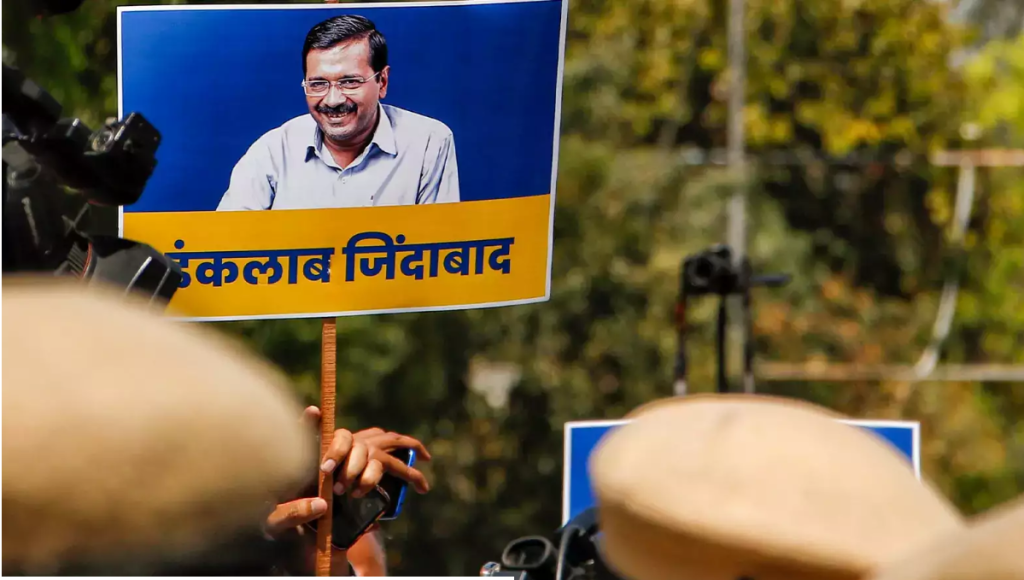Arvind Kejriwal’s arrest sparks debate on political vendettas and judicial delays, highlighting the public’s disillusionment with the legal system and politicians’ misuse of power for harassment
Is it wrong to arrest a sitting chief minister like Arvind Kejriwal? No, chief ministers should have no immunity. But the charges should be credible.
Is Kejriwal’s arrest justified after his persistent refusal to appear before the Enforcement Directorate? Yes. Nobody should defy legal summons indefinitely.
Does Kejriwal have serious questions to answer about the Delhi liquor scam, which earlier led to the arrest of his deputy chief minister Manish Sisodia? Yes. Damaging testimony has come from credible witnesses.
Politics requires money, and liquor licences are a long-established vehicle for state governments to acquire funds. Has Kejriwal done anything others haven’t? Almost certainly not. But politics has an Eleventh Commandment — Thou Shalt Not Be Caught. Those breaking that commandment must face the consequences.
Is his arrest part of efforts to tarnish the image and cripple the functioning of top opposition politicians in the run-up to the general election? All major politicians arrested by enforcement and tax authorities belong to the opposition and none to the BJP. That can’t be a coincidence. The timing of the freezing of Congress party’s funds for alleged money laundering also raises questions.
Kejriwal, Rahul Gandhi and other opposition leaders have lambasted BJP. Rahul Gandhi tweeted, “A scared dictator wants to create a dead democracy.” Aam Aadmi Party’s Raghav Chadha says there is an undeclared Emergency.
Will this spark a voter revolt? Not a chance. They see it as politics as usual.
Arrests have for decades been politically motivated. They rarely lead to conviction, so the public views them as mere vendetta. Laws on money laundering, sedition, unlawful activities, and hurting sentiments of communities are so vaguely worded that almost anybody can be arrested on flimsy charges.
Criticism that should be permissible in any self-respecting democracy can lead to arrest in India. Some people have been arrested for merely sharing memes and Facebook posts. Rahul Gandhi was charged and convicted for remarks that would have been called unremarkable in other democracies.
Historically, have all political parties, including Congress, misused laws and executive powers to harass opponents and protect their own? Yes. But while BJP cannot be accused of originality, it can be congratulated for being the best at it.
The crackdown on NGOs, independent institutions and other avenues of dissent has resulted in India sliding in global indices measuring democratic and human rights. Newspapers ranging from the Wall Street Journal to the Guardian have mourned this descent.
Judicial delays have added to the problems. In any self-respecting democracy, those unfairly arrested should be out on bail and declared ‘not guilty’ after quick trials. But in India, many are arrested and denied bail while police investigations go on for years before even filing of chargesheets. Subsequent trials take up to decades, causing endless harassment.
As the Supreme Court puts it, the process has become the punishment. Conviction rates are outrageously low, confirming that most arrests are groundless. But those accused suffer harassment, imprisonment, and odium for decades.
The public views politicians, with rare exceptions, as venal rascals. For decades, parties have lambasted one another for corruption. Yet, on coming to power, parties have rarely followed up on their allegations. Since all parties have skeletons in cupboards, none are keen on opening them.
In the famous hawala case of the 1990s, the Jain diaries suggested payments to top politicians of several parties. Unsurprisingly, none of the many governments that came to office in the 1990s pursued the case. So, an angry Supreme Court insisted on a CBI probe and prosecution. Alas, as amicus curiae Anil Dhawan said, every case was deliberately lost through weak prosecution. Some called it a gentleman’s agreement to go soft on the role of money in politics. Others called it honour among thieves. BJP has now broken that mould decisively.
Interesting question: why have non-BJP state governments not retaliated with similar vendettas? The Centre may control enforcement and income-tax authorities, but state governments control their police and so have wide powers to arrest and harass central BJP ministers.
One reason for their inaction is lack of unity among opposition parties. Besides, the Centre can squeeze finances of a state government and deny them sundry permissions, so any state taking on New Delhi risks serious consequences. Hence, even as central agencies arrest opposition CMs like Kejriwal and Hemant Soren, no state government arrests central ministers.
India will be a better place if hundreds of crooked politicians are given bail but jailed after swift trials. Does anyone believe that Kejriwal’s arrest is a step towards this desirable aim? Alas, no.
This article was originally published by The Times of India on March 23, 2024.


